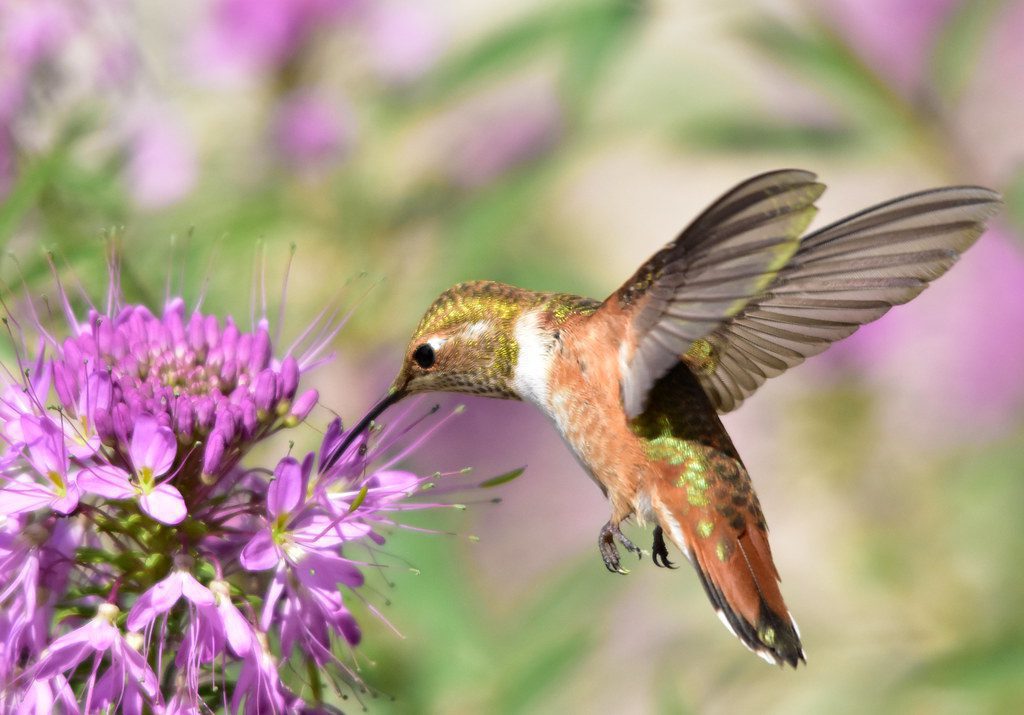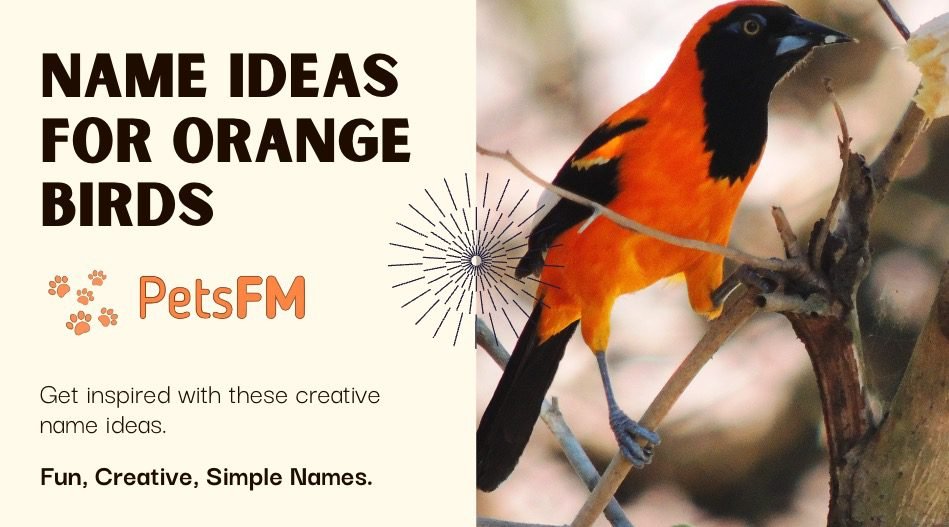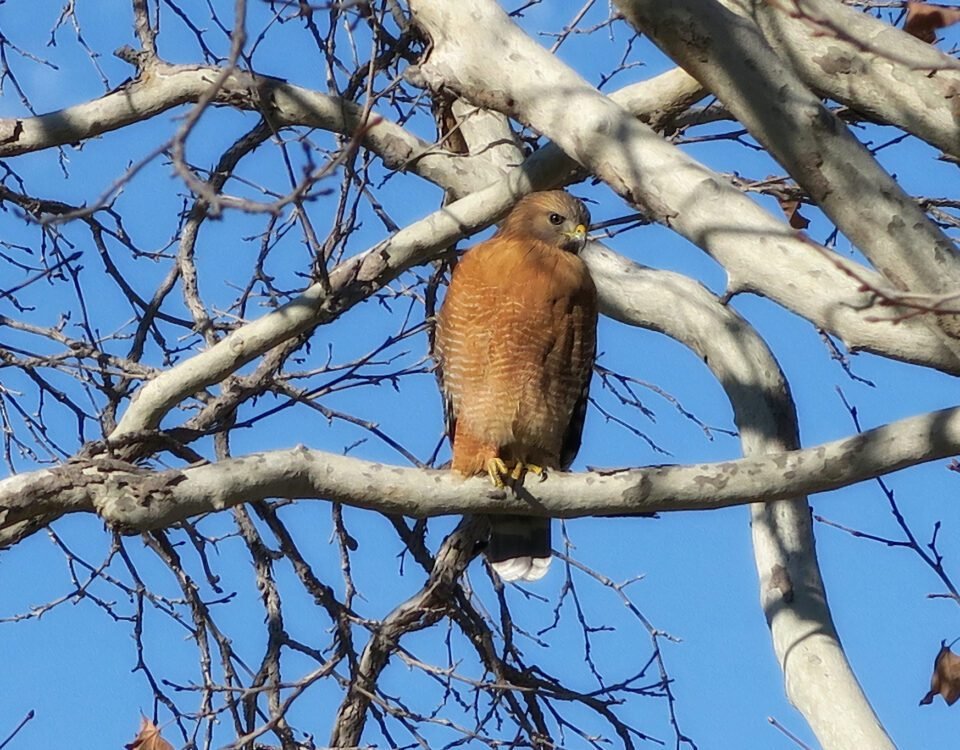


Do Hummingbirds Migrate in Flocks or Alone? ANSWERED
November 13, 2023


Do Hummingbirds Whistle? Here’s Everything You Need To Know!
November 13, 2023Have you ever seen a hummingbird bouncing from flower to flower and wondered how they decide where to go next? These tiny, vibrant birds are known for their remarkable flying skills and their love for sweet nectar, but there’s one question that often goes unanswered: Can hummingbirds smell?
Can Hummingbirds Smell?
Hummingbirds do have olfactory structures to detect smells, allowing them to use their sense of smell as a means of survival. This sensory ability helps them avoid dangers and locate insects and nectar for nourishment.
For a long time, it was commonly believed that hummingbirds did not possess a sense of smell. However, recent studies, including a significant one from the University of California, Riverside, have challenged this assumption, revealing that hummingbirds do, in fact, have a keen sense of smell. This discovery has shed new light on their feeding habits and their interactions within their ecosystem.


Rufous Hummingbird
These birds have olfactory bulbs in their brains, though small in size, especially compared to the larger bulbs found in birds like vultures known for their strong sense of smell.
These tiny bulbs, situated at the forebrain’s base and connected to the nasal cavity by the olfactory nerve, are the crucial components for scent detection. Despite their tiny size, these structures are functional in hummingbirds, overturning the longstanding misconception regarding their olfactory capabilities.
Hummingbird’s Olfactory System- How Does It Work?
The olfactory bulbs are essential for hummingbirds to detect and discern various smells. The brain’s interpretation of smells through these structures not only helps them recognize different scents but can also evoke specific behavioral responses and memories related to those smells.
Here’s a breakdown of how the olfactory system functions in a hummingbird:
- The hummingbird encounters scent particles in the air, which are picked up by specialized cells known as olfactory receptor neurons in their nasal cavity.
- These neurons are equipped with receptors tuned to latch onto specific scent molecules.
- Once these scent molecules connect with the receptors, they initiate an electrical signal in the neuron.
- This electrical impulse travels along the olfactory nerve, comprised of a bundle of axons from these olfactory receptor neurons.
- The signal reaches the olfactory bulbs in the hummingbird’s brain, where it undergoes initial processing.
- Distinctive patterns of neuronal activity are triggered by different scents, allowing the hummingbird’s brain to identify various odors.
- These processed signals are then relayed to further brain regions, like the olfactory cortex, where the interpretation of the odor is refined, leading to the recognition of specific scents.
Can Hummingbirds Smell Sugar Water In A Bird Feeder?
Yes, they can! Hummingbirds have the neat trick of being able to smell the sweetness in the water of a feeder. They’re even smart enough to tell how sweet it is just by smelling it.
Regarding flowers, it’s not just the pretty smell that hummingbirds are after. What really gets their attention is the sweet smell that tells them how much sugar is in the nectar. It works the same way with feeders.
A hummingbird’s nose is vital to finding the good stuff – sugary water that gives them the energy they need. With their super-fast flying and heartbeat, they need lots of nectar to keep going.


When they encounter a feeder, their noses tell them if the sugar water is right. The magic mix they love is one part sugar to four parts water, just like the nectar from their favorite red flowers.
They also use their sniffing powers to choose flowers filled with the most nectar, making their food search fast and easy.
Even though the scent of a flower isn’t the main thing that draws them in, it might help them spot the flowers with the best sugar-filled nectar.
Can A Hummingbird Smell Flowers Around It?
Hummingbirds can pick up on the smell of flowers, yet it’s not just any scent that draws them in; it’s the specific aroma of sugar in the nectar that’s appealing to them. They can even determine how much sugar is present in the nectar just by its smell.
These tiny birds use their olfactory bulbs – the smell-processing center in their brains – to detect the smells of different flowers.
Despite previous beliefs that hummingbirds couldn’t smell because of the small size of their olfactory bulbs, recent findings have turned this assumption on its head. Research funded by the National Science Foundation and reported by UC Riverside News has confirmed that hummingbirds can smell.
Researchers at the University of California, Riverside, found that despite their olfactory bulbs being relatively small, hummingbirds can still detect floral aromas.
The research, which was supported by the National Science Foundation, demonstrated through scent-based experiments that hummingbirds are capable of telling apart the smells of flowers and insects.
Can A Hummingbird Find An Insect By Smelling?
Hummingbirds use their sense of smell to identify insects, using olfactory signals to distinguish between a potential meal and a competing insect.
Known for their extraordinary vision, hummingbirds typically seek out brightly colored flowers brimming with nectar. Yet, there’s an additional layer to how they find their food.


Hummingbird Sucking Nectar
Research has shown that these birds also depend on their sense of smell. Recent studies have recorded how the olfactory senses in hummingbirds, both in the wild and in captivity, are crucial for finding food efficiently, particularly when it comes to insects.
While they predominantly rely on sight to find nectar, their ability to smell enhances their effectiveness in foraging and helps them avoid competitors.
What Scents Do Hummingbirds Dislike?
Hummingbirds are put off by the scent of formic acid, released by certain ants like Formica and Argentine ants. They avoid aromas similar to formic acid, which can be dangerous to them. The specific smells that hummingbirds avoid can differ from one bird to the next and between different hummingbird species.
Studies have shown that the odor of formic acid acts as a deterrent to hummingbirds, indicating not just the presence of ants that could be a threat but also a potential risk to their own well-being.
Contrary to earlier scientific thought, which suggested hummingbirds couldn’t smell due to the small size of their olfactory bulbs, ongoing research, including studies from the University of California, Riverside, has proven that hummingbirds have a sense of smell.
Conclusion
In conclusion, the perception that hummingbirds are scent-blind has been debunked by recent studies, revealing that these vibrant birds do have the capacity to smell. From distinguishing between sweet nectar and the optimal sugar concentration in feeders to avoiding the dangerous formic acid emitted by ants, hummingbirds’ sense of smell plays a crucial role in their survival and foraging behaviors.



